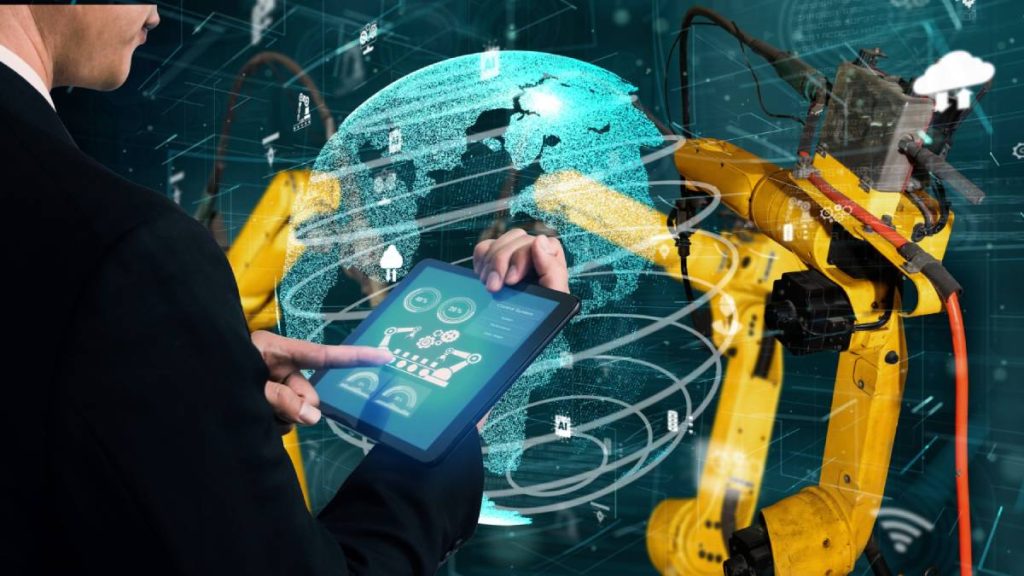How Artificial Intelligence is Redefining the Global Workforce
Artificial intelligence (AI) is revolutionizing the global workforce by automating tasks, enhancing productivity, and creating new opportunities. From manufacturing to healthcare, AI is reshaping industries worldwide, leaving a lasting impact on the global economy.
The Role of AI in Global Job Creation
AI is not only replacing repetitive tasks but also generating new job roles that require advanced technical skills. This evolution in the global workforce presents opportunities for reskilling and adapting to a rapidly changing employment landscape, which is essential for sustaining global economic growth.
The Impact of Automation on Global Industries
Automation powered by AI is transforming industries across the global market. From smart factories to autonomous vehicles, automation enhances efficiency and reduces costs. However, its rapid adoption also raises questions about job displacement and its long-term effects on the global workforce.
AI-Driven Upskilling for the Global Workforce
To adapt to an AI-driven world, the global workforce must focus on upskilling and continuous learning. Training programs in machine learning, data analysis, and AI ethics can help workers remain competitive and relevant in the evolving global economy.
How AI is Shaping Global Collaboration
AI-powered tools are enabling seamless collaboration across the global workforce. Platforms for virtual communication, project management, and data sharing are breaking down geographical barriers, fostering a more interconnected and efficient global economy.
The Ethical Implications of AI in the Global Workforce
The integration of AI into the global workforce raises important ethical concerns, including data privacy, bias, and job equality. Establishing global guidelines and ethical standards is crucial to ensure AI benefits all sectors of the global economy responsibly.
AI’s Role in Enhancing Workplace Efficiency Globally
AI is streamlining processes and improving efficiency across the global workforce. By automating repetitive tasks, employees can focus on creative and strategic work, ultimately boosting productivity and contributing to global economic development.
The Future of Work in a Global AI-Powered Economy
The future of work will be deeply influenced by AI as industries continue to integrate intelligent technologies. The global workforce must adapt to these changes by embracing innovation, lifelong learning, and collaboration to thrive in the evolving global economy.
Conclusion
Artificial intelligence is transforming the global workforce by creating new opportunities, enhancing efficiency, and driving innovation. While challenges such as ethical considerations and job displacement exist, embracing AI responsibly can pave the way for a more inclusive and prosperous global economy. Adapting to these advancements is essential for ensuring a sustainable future for the workforce.
Frequently Asked Questions
- What is the impact of AI on the global workforce?
- It automates tasks, enhances productivity, and creates new job roles.
- How is AI driving job creation globally?
- By introducing roles in advanced technical fields and AI-related industries.
- What industries are most affected by AI automation?
- Manufacturing, healthcare, and transportation are significantly impacted.
- How can workers adapt to an AI-driven global economy?
- By upskilling in areas like machine learning, data analysis, and AI ethics.
- What are the ethical challenges of AI in the workforce?
- Issues include data privacy, bias, and ensuring job equality.
- How does AI improve global workplace efficiency?
- By automating repetitive tasks and enabling employees to focus on strategic work.
- What role does AI play in global collaboration?
- AI-powered tools foster seamless virtual communication and project management.
- What is the future of work in a global AI-powered economy?
- The workforce will need to adapt to intelligent technologies and lifelong learning.
- How does AI contribute to the global economy?
- It boosts productivity and innovation, driving economic growth worldwide.
- What steps can organizations take to prepare for AI integration?
- Implementing training programs and ethical guidelines ensures smooth adoption.

